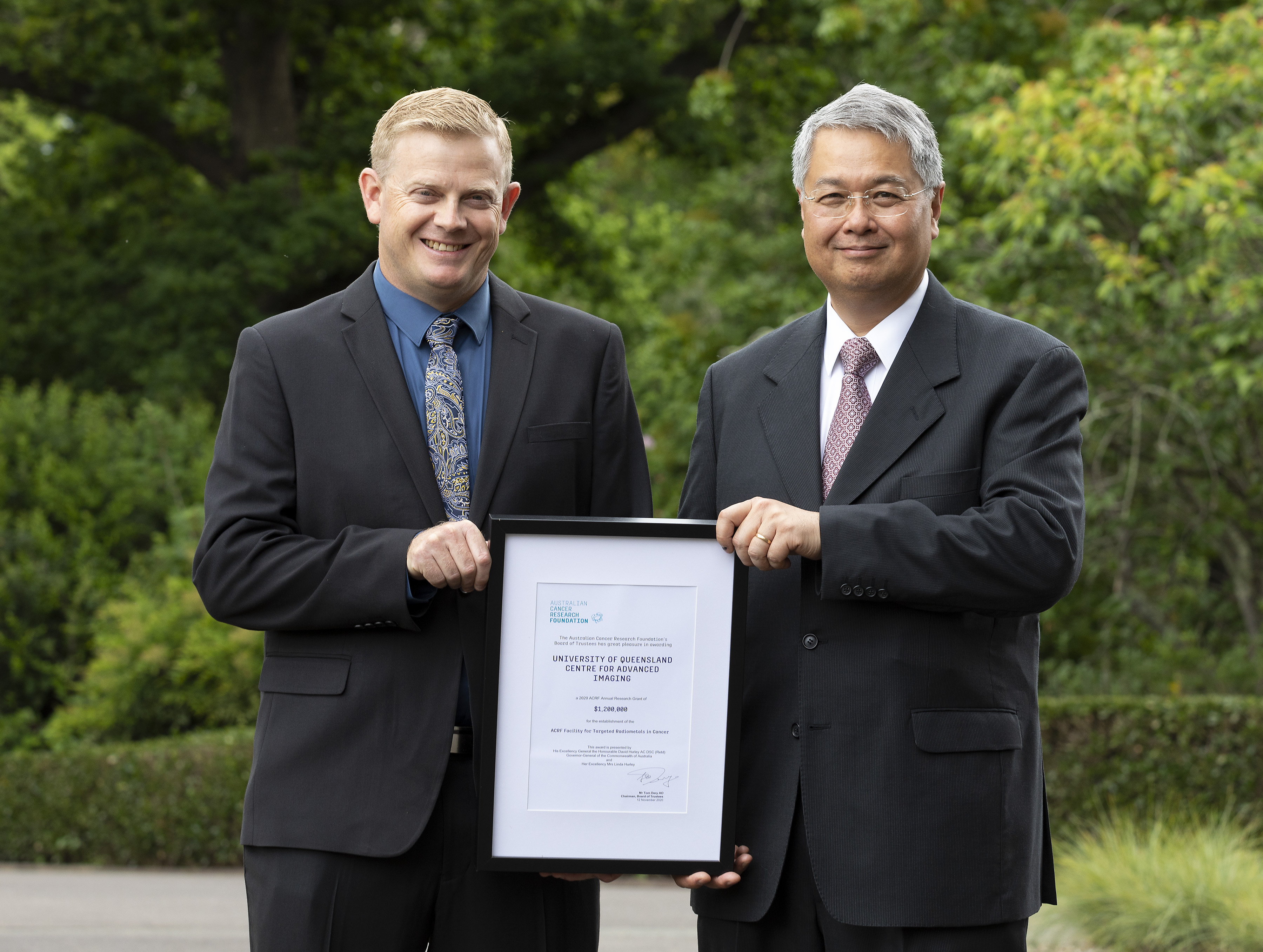The University of Queensland’s Centre for Advanced Imaging (CAI) has received $1.2 million from the Australian Cancer Research Foundation (ACRF) to establish an Australian first facility to develop radiometals for cancer therapy.
This new facility will focus on ‘alpha therapies’, a type of precision medicine, which has the potential to be more effective in killing cancer without damaging healthy tissue.
Director of the UQ Centre for Advanced Imaging Professor David Reutens explained the significance of the funding.
“ACRF funding provides critical equipment to complete the research pathway from synthesis of novel agents through to clinical studies and patient therapy, enabling researchers to unlock the cancer-curing potential of targeted alpha therapy,” Professor Reutens said.
The new facility will be Australia’s first facility for the discovery, development and clinical translation of novel alpha particle-based cancer therapeutics, and radiometal theranostic and diagnostic imaging agents.
Research at the facility will focus on discovering better ways of specifically targeting and delivering therapeutic payloads to cancer cells, measuring their effects on tissue and translating them into clinical use.
“The new facility will complement the nation’s most comprehensive suite of preclinical and clinical imaging research instruments at the Centre for Advanced Imaging, allowing us to fast-track the development of new cancer therapies,” Professor Reutens said.
The ACRF Facility for Targeted Radiometals in Cancer (AFTRiC) is one of three grant recipients across Australia receiving valuable ACRF funding for initiating new cancer research.
ACRF Chair, Mr Tom Dery AO, highlighted the importance of ongoing support for cancer research during the coronavirus pandemic.
“ACRF is committed to continuing our support for cancer research across Australia,” Mr Dery said.
“Whilst we understand the current spotlight on research around COVID-19 we need to ensure there is a continued focus and investment in research for cancer – an insidious group of diseases that continue to impact the lives of hundreds of thousands of Australians each year,” he said.
The facility will drive collaboration between leading UQ, Australian and international academic, clinical and industry researchers.
AFTRiC builds on other research capabilities located at CAI such as the ACRF Facility for Molecular Imaging Agents in Cancer and Australian Research Council Training Centre for Innovation in Biomedical Imaging Technology.

Media: Maria Moran, UQ Communications, maria.moran@cai.uq.edu.au, +61 7 3365 1785.
Additional media:



